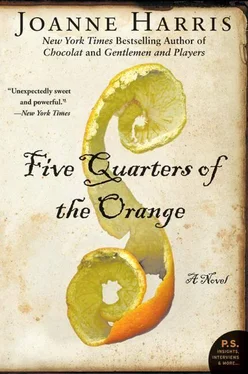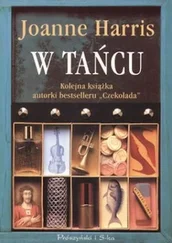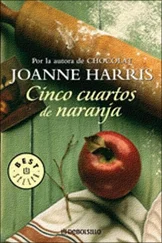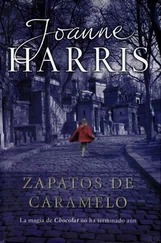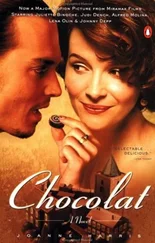“Don’t slouch , for God’s sake.” Her voice was tart as an unripe gooseberry. “You know that if you slouch, you’ll end up staying that way.”
I gave her a quick, insolent look and put my elbows on the table.
“Elbows off the table!” she almost moaned. “Look at your sister. Look at her. Does she slouch? Does she behave like a sulky farmhand?”
It did not occur to me to resent Reinette. It was my mother I resented, and I showed it with every movement of my sly young body. I gave her every excuse to hound me. She wanted the clothes on the washing line hung by the hems: I hung them by the collars. The jars in the pantry had to have the labels facing the front: I turned them backward. I forgot to wash my hands before meals. I changed the order of the pans hanging on the kitchen wall, largest to smallest. I left the kitchen window open so that when she opened the door the draft would make it bang. I infringed a thousand of her personal rules, and she reacted to each trespass with the same bewildered rage. To her, those petty rules mattered because those were the things she used to control our world. Take them away and she was like the rest of us, orphaned and lost.
Of course, I didn’t know that then.
“You’re a hard little bitch, aren’t you?” she said at last, pushing away her plate. “Hard as nails.” There was neither hostility nor affection in her voice, merely a kind of cool disinterest. “I used to be like that,” she said. It was the first time I had ever heard her speak of her own childhood. “At your age.” Her smile was stretched and mirthless. Impossible to imagine her ever being young. I stabbed at my paupiette in its congealing sauce.
“I always wanted to fight everybody too,” said my mother. “I would have sacrificed everything, hurt anyone to prove myself right. To win.” She looked at me intently, curiously, her black eyes like pinpricks in tar. “Contrary, that’s what you are. I knew from the moment you were born that’s what you were going to be. You started it all again, worse than ever. The way you screamed in the night and wouldn’t feed-and me lying awake with the doors closed and my head pounding.”
I did not answer. After a moment my mother laughed rather jeeringly and began to clear the dishes. It was the last time she spoke of the war between us, though that war was far from over.
The Lookout Post was a large elm on the near bank of the Loire. Half overhanging the water, a clutch of thick roots hanging down deep from the dry soil of the bank, it was easy to climb even for me, and from the higher branches I could see all of Les Laveuses. Cassis and Paul had built a primitive tree house there-a platform and some branches bent over to make a roof-but I was the one who spent the most time in the completed shelter. Reinette was reluctant to climb to the top, though the way had been made easier by means of a knotted rope, and Cassis rarely went there any more, so I often had the place to myself. I went there to think and to watch the road, where sometimes I could see the Germans in their jeeps-or more often, motorcycles-passing by.
Of course, there was little to interest the Germans in Les Laveuses. There were no barracks, no school, no public buildings for them to occupy. They settled in Angers instead, with only a few patrols around the neighboring villages, and all I saw of them-except for the vehicles on the road-were the groups of soldiers sent every week to requisition produce from the Hourias farm. Our own was less frequented: we had no cows, only a few pigs and goats. Our main source of income was fruit, and the season had barely begun. A couple of soldiers came, halfheartedly, once a month, but the best of our supplies were well hidden, and Mother always sent me out into the orchard when the soldiers came. Even so I was curious about the gray uniforms, sometimes sitting in the Lookout Post and shooting imaginary rockets at the jeeps as they sped by. I was not truly hostile-none of the children were. We were merely curious, repeating the insults our parents taught us-filthy Boche , Nazi swine-out of an instinct for mimicry. I had no idea of what was happening in Occupied France; little enough notion of where Berlin even was.
Once they had come to requisition a violin from Denis Gaudin, Jeannette’s grandfather. Jeannette told me about it just a week before she died. It was getting dark and the blackout shutters were already in place, when she heard a knocking at the door. She opened it and saw a German officer. In polite though laborious French he addressed her grandfather.
“ Monsieur , I…understand…you have…a violin. I…need it.”
A few of the officers, it seemed, had decided to form a military band. I suppose even Germans needed some way of passing the time.
Old Denis Gaudin looked at him. “A violin, mein Herr , is like a woman,” he replied pleasantly. “Not to be lent out.” And very gently he closed the door. There was a silence as the officer digested this. Jeannette looked up at her grandfather with wide eyes. Then, outside, the sound of the German officer laughing and repeating:
“Wie eine Frau! Wie eine Frau!”
The German officer never came back, and Denis kept his violin until much later, almost until the end of the war.
For a time that summer, however, my main interest was not the Germans. I spent most of my waking hours-and many of my sleeping-devising ways of trapping Old Mother. I studied the various techniques of fishing. Line for eels, pots for crays, dragnets, straight nets, live bait and skim lures. I went to Jean-Marc Hourias and plagued him until he had told me all he knew about bait. I dug bloodworms from the sides of the banks and learned to keep them in my mouth for warmth. I trapped bluebottles and threaded them on lines bristling with fishhooks like strange tinsel. I made traps from cages of willow and thread, baited with scraps. A single touch on one of the threads in the cage and it would spring shut, jerking the whole contraption out of the water as the bent branch underneath it was released. I stretched pieces of net across the narrower channels between the sandbanks. I left static lines baited with boluses of rotting meat hanging from the far bank. In this way I caught any number of perch, small bleaks, gudgeons, minnows and eels. Some I took home to eat and watched my mother prepare them. The kitchen was the now only neutral place in the house, a place of brief respite from our private war. I used to stand beside her, listening to her low monotone, and together we made her bouillabaisse angevine , the fish stew with red onions and thyme, and perch roasted in tinfoil with tarragon and wild mushrooms. Some of my catches I left at the Standing Stones in gaudy, stinking garlands: a warning and a challenge.
But Old Mother did not come. On Sundays, when Reine and Cassis were home from school, I would try to infuse them with my passion for the hunt. But since Reine-Claude’s admission to the collège earlier that year the two of them had become a race apart. Five years separated me from Cassis. From Reine, three. And yet they seemed closer than two years to each other, gilded with adulthood, so alike with their golden faces and high cheekbones that they might almost have been twins. They often talked together in secret whispers, secret laughter, naming friends I had never heard of, laughing at private jokes. Alien names punctuated their conversations. Monsieur Toupet. Madame Froussine. Mademoiselle Culourd. Cassis had nicknames for all his teachers and could mimic their habits, their voices to make Reine laugh. Other names, whispered under cover of darkness when I was asleep, seemed to be those of their friends. Heinemann. Leibniz. Schwartz. Laughter when these names were whispered, strange, spiteful laughter with a bright note of guilt and hysteria. They were names I did not recognize, foreign names, and when I asked about them, Cassis and Reine-Claude simply giggled and ran away, arm in arm, toward the orchard.
Читать дальше
